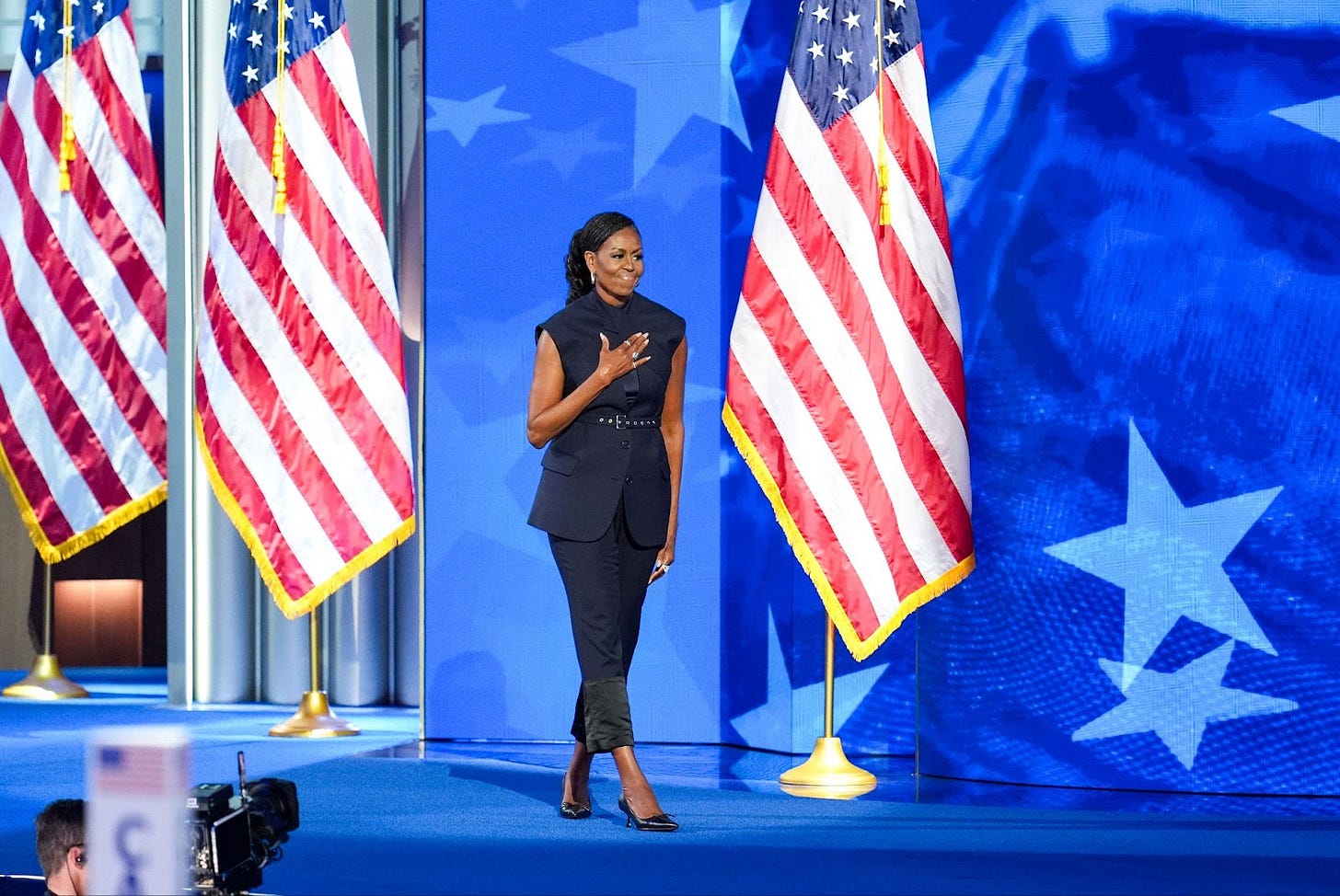Michelle Obama Resurrects Hope
Analysis: The former first lady displays the power of her influence long after leaving the White House.

Michelle Obama walked on the convention stage Tuesday, electrified the audience, paid homage to her mother, saluted Vice President Kamala Harris’s character and credentials and took on Donald Trump in blistering attacks.
But not before she told Americans “hope is making a comeback,” compelling voters to take action.
In a throwback to the Obama presidency from Democratic National Convention at the United Center in Chicago, the couple’s hometown, the former first lady spoke of “the anticipation, the energy, the exhilaration of once again being on the cusp of a brighter day.”



